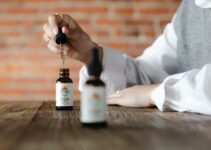As a lifelong insomniac, I've experienced the frustration of sleepless nights. But after discovering the power of CBD, my sleep has transformed. In this comprehensive guide, I'll share how I mastered CBD for better sleep. From understanding insomnia to finding the right product and dosage, I'll cover it all. Join me on this journey to better sleep and learn how CBD can make a difference in your life.
Key Takeaways
- Insomnia can have various causes, but CBD has potential benefits in managing sleep issues.
- Taking CBD about an hour before bedtime can maximize its sleep benefits.
- Starting with a low dose of CBD and gradually increasing helps determine the optimal amount for better sleep.
- Establishing a bedtime routine, incorporating relaxation techniques, and maintaining consistent CBD use can optimize sleep quality.
Understanding Insomnia
As someone who has struggled with insomnia, I know firsthand the frustration of lying awake at night, unable to fall asleep. Insomnia can have various causes, including stress, anxiety, depression, irregular sleep schedules, and certain medications. Understanding these underlying causes is crucial in determining the most effective treatments. For some, simple lifestyle changes such as establishing a regular sleep routine, reducing caffeine intake, and creating a calming bedtime environment can significantly improve sleep quality. Others may benefit from cognitive-behavioral therapy or medication, but it's essential to consult a healthcare professional to explore the most suitable treatment options. Additionally, emerging research suggests that CBD, a non-psychoactive compound derived from the cannabis plant, may offer potential benefits in managing insomnia. Exploring these diverse treatment approaches can provide valuable insights into addressing the complexities of insomnia.
Benefits of CBD for Sleep
I've found that CBD can have a positive impact on sleep quality, and it's important to understand the right dosage for achieving better rest. These two points are crucial in unlocking the full potential of CBD as a sleep aid.
CBD and Sleep Quality
Improving sleep quality with CBD involves understanding its potential benefits for promoting better rest. Research on CBD and sleep disorders suggests that CBD may offer several advantages for improving sleep quality:
- Relaxation: CBD has been found to promote relaxation, helping to calm the mind and reduce anxiety, which can contribute to better sleep.
- Pain Relief: CBD's potential pain-relieving properties may alleviate discomfort, allowing for more restful sleep.
- Regulating Sleep Cycles: CBD might help regulate sleep-wake cycles, promoting a more consistent and restorative sleep pattern.
- Reduced Nighttime Disturbances: Some studies indicate that CBD could minimize disturbances during the night, leading to deeper, uninterrupted sleep.
These potential benefits make CBD an intriguing option for those seeking to improve their sleep quality. Transitioning into the subsequent section about 'cbd dosage for sleep', it's essential to consider the appropriate dosage for maximizing these benefits.
CBD Dosage for Sleep
Typically, I take CBD for sleep about an hour before bedtime to maximize its potential benefits for promoting better rest. Research suggests that CBD can be effective in improving sleep patterns. When it comes to CBD effectiveness for sleep, it's essential to find the right dosage that works for you. Starting with a low dose and gradually increasing it can help determine the optimal amount needed for better sleep. Personally, I found that a moderate dosage of CBD has positively impacted my sleep, helping me fall asleep more easily and improving my overall sleep quality. It's important to note that individual responses to CBD may vary, so it's crucial to pay attention to how CBD affects your sleep and adjust the dosage accordingly. Consulting with a healthcare professional can also provide valuable guidance on using CBD for better sleep.
Choosing the Right CBD Product
When it comes to choosing the right CBD product for better sleep, there are a few key points to consider. Understanding the different types of CBD products available, along with finding the right dosage and potency, is essential for achieving the desired sleep benefits. By taking these factors into account, individuals can make informed decisions about which CBD product may best suit their needs.
CBD Product Types
As I explore the various CBD product types, it becomes clear that understanding their differences is essential for choosing the right one for my needs. When it comes to CBD, delivery methods and different formulations play a crucial role in its effectiveness. Here are some key product types to consider:
- CBD Tinctures: Fast-acting and versatile.
- CBD Capsules: Precise dosing and convenient.
- CBD Topicals: Targeted relief for localized discomfort.
- CBD Edibles: Discreet and easy to incorporate into daily routine.
Each product type offers unique benefits, and considering my preferences and needs will help me make an informed decision.
Now, let's delve into the essential aspects of dosage and potency for optimizing the benefits of CBD products.
Dosage and Potency
Finding the right dosage and potency for a CBD product can significantly impact its effectiveness in improving my sleep quality. It's crucial to find balance when determining the right dosage, as taking too little may not produce the desired effects, while taking too much could lead to potential side effects. When starting with CBD, it's recommended to begin with a low potency and gradually increase until the desired effects are achieved. Measuring effectiveness is key in this process, as it allows me to adjust the dosage accordingly. It's important to note that everyone's ideal dosage and potency can vary based on factors such as body weight, metabolism, and the severity of sleep issues. Consulting with a healthcare professional can also provide valuable guidance in finding the optimal CBD dosage and potency for better sleep.
Finding the Optimal Dosage
I discovered the optimal CBD dosage for better sleep through careful experimentation and observation. Finding balance with CBD requires an individualized approach, and after some trial and error, I found what works best for me. Here are a few key points that helped me determine my optimal CBD dosage:
- Start low: I began with a low dose and gradually increased it until I found the right balance between effectiveness and minimal side effects.
- Keep a sleep journal: Recording my CBD intake and sleep patterns helped me track the effects of different dosages, making it easier to pinpoint the optimal amount.
- Listen to my body: Paying attention to how my body responded to different doses was crucial in finding the sweet spot for better sleep.
- Consult a healthcare professional: Seeking guidance from a healthcare professional ensured that my CBD usage aligned with my overall health and wellness goals.
Establishing a Bedtime Routine
After experimenting with CBD dosages, I established a bedtime routine to optimize my sleep quality. Incorporating relaxation techniques into my routine has been crucial. I start by dimming the lights and engaging in calming activities like reading or practicing deep breathing exercises. Creating a comfortable sleep environment has also been essential. I invested in blackout curtains and a white noise machine to minimize disruptions. Additionally, I set a consistent bedtime and wake-up time to regulate my body's internal clock. Integrating CBD into my routine has further enhanced my sleep quality. I take my preferred CBD product about 30 minutes before bedtime, allowing it to promote relaxation and ease any lingering tension. By following this routine, I've experienced a significant improvement in my sleep patterns and overall well-being.
Maintaining Consistent Use
To achieve optimal results, I consistently incorporate CBD into my bedtime routine, ensuring that I maintain regular usage for better sleep. Building routine is essential for reaping the full benefits of CBD for sleep. Here's how I maintain consistent CBD use for better sleep:
- Incorporating CBD into my nightly wind-down: I make it a point to include CBD as part of my pre-sleep ritual.
- Keeping CBD in my sleep environment: Having CBD readily available in my bedroom ensures that I don't skip using it.
- Setting reminders: I use reminders on my phone or notes around the house to ensure I don't forget to take my CBD at the same time each night.
- Tracking progress: I keep a sleep journal to monitor how consistent CBD use affects my sleep quality.
Monitoring and Adjusting
Consistently monitoring my CBD usage and making adjustments as needed has been crucial in optimizing its effectiveness for improving my sleep quality. Tracking progress allows me to see the direct impact of CBD on my sleep patterns. I keep a detailed journal noting the time and dosage of CBD, as well as the quality of sleep I experience. This helps me identify any patterns or correlations between dosage and sleep quality. Additionally, I pay attention to my daily habits, such as exercise, caffeine intake, and screen time before bed, and make adjustments as necessary. By adjusting habits, I can determine if there are external factors affecting my sleep and make the necessary changes to ensure a better night's rest.
| CBD Usage Log | Dosage (mg) | Time Taken | Sleep Quality (1-10) |
|---|---|---|---|
| Monday | 25 | 9:00 pm | 8 |
| Tuesday | 30 | 8:30 pm | 7 |
| Wednesday | 25 | 9:15 pm | 9 |
| Thursday | 30 | 9:00 pm | 6 |
Additional Sleep Support
By incorporating other sleep support methods alongside CBD, I have found a more comprehensive approach to improving my sleep quality. Along with CBD, I have discovered that incorporating natural remedies and healthy habits has significantly enhanced my ability to fall asleep and stay asleep throughout the night. Here are a few additional sleep support methods that have worked wonders for me:
- Aromatherapy: Using essential oils like lavender or chamomile in a diffuser has helped create a calming atmosphere in my bedroom.
- Bedtime Yoga: Practicing gentle yoga poses before bed has helped me relax my body and mind, preparing me for a restful night's sleep.
- Sleep-friendly Diet: Consuming sleep-promoting foods such as bananas, almonds, and herbal teas has positively impacted my sleep patterns.
- Digital Detox: Limiting screen time and engaging in relaxing activities before bed has significantly improved my ability to fall asleep faster.
These natural remedies and healthy habits, when combined with CBD, have made a remarkable difference in my sleep quality.
Frequently Asked Questions
Can CBD Interact With Any Medications Commonly Used for Insomnia?
Yes, CBD can potentially interact with some medications commonly used for insomnia. It's important to consult with a healthcare professional before combining CBD with any medications. CBD dosages and its effects on sleep quality vary.
Are There Any Potential Side Effects of Using CBD for Sleep?
Using CBD for sleep may have potential risks and long term effects. It's important to be aware of possible side effects such as dry mouth, diarrhea, reduced appetite, drowsiness, and interactions with other medications.
How Does CBD Compare to Other Natural Sleep Remedies, Such as Melatonin or Valerian Root?
Compared to other natural sleep remedies like melatonin or valerian root, CBD's effectiveness can vary. Finding the right dosage and recommendations is important. It's essential to consider individual differences and consult a healthcare professional.
Are There Any Specific Types of Insomnia or Sleep Disorders That CBD Is Not Recommended For?
I've found that CBD may not be recommended for certain specific types of insomnia, like narcolepsy. It's also important to note that CBD might not be suitable for individuals with sleep apnea.
Can CBD Be Used in Combination With Other Sleep Aids, Such as Prescription Medications or Over-The-Counter Supplements?
Yes, CBD can be used in combination with other sleep aids like prescription medications or over-the-counter supplements. It's essential to consult a healthcare professional to ensure there are no adverse interactions.




